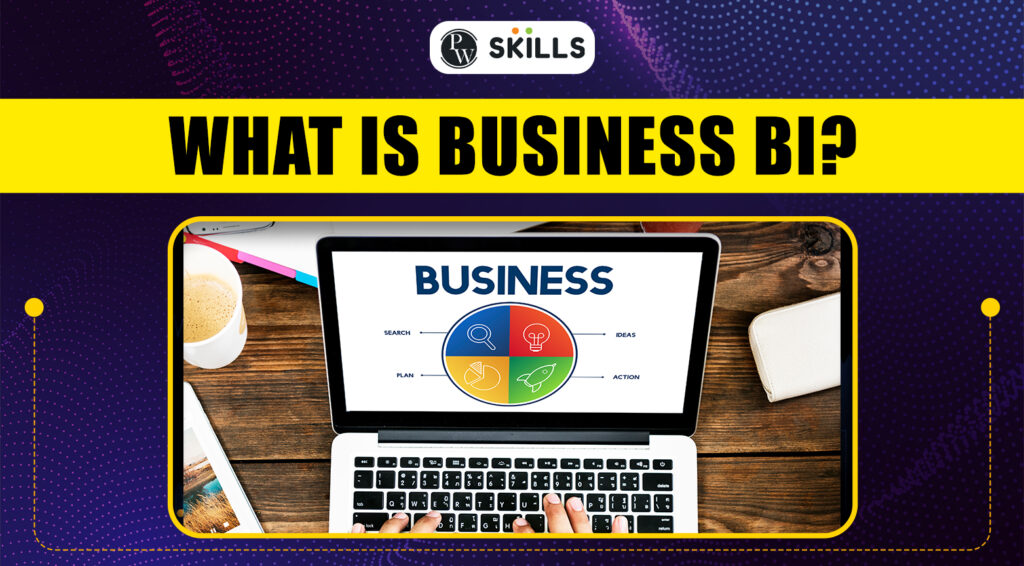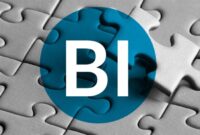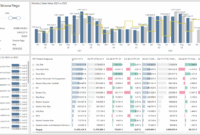How Small Businesses Can Compete Using BI is crucial in today’s data-driven landscape. As small businesses look to carve out their niche in competitive markets, leveraging Business Intelligence (BI) tools can provide them with the insights needed to make informed decisions, optimize operations, and enhance customer experiences. Understanding how to utilize BI effectively can be the difference between stagnation and growth.
In this discussion, we will explore the benefits of BI for small businesses, including how it helps in identifying market trends, understanding customer behavior, and improving financial management. By harnessing data analytics, even the smallest players can gain a competitive edge, ensuring they are not left behind in an increasingly complex marketplace.
In the modern world, where technology is advancing at a breakneck speed, the importance of digital literacy cannot be overstated. Digital literacy goes beyond merely knowing how to use a computer or navigate the internet. It encompasses a broad range of skills that are essential for thriving in today’s society, whether it’s for personal development, professional growth, or simply staying informed.
This article will delve into the various aspects of digital literacy, its significance, and how individuals can improve their skills to better navigate the digital landscape.To start with, digital literacy can be defined as the ability to find, evaluate, create, and communicate information using digital technologies. This includes not only the use of computers and mobile devices but also understanding how to interact safely and effectively with various online platforms.
As society becomes increasingly reliant on digital technologies, the ability to discern credible information from misinformation is more crucial than ever. ### The Importance of Digital LiteracyDigital literacy is vital for several reasons. First, it empowers individuals to access and utilize information effectively. In an era when information is abundant yet often misleading, knowing how to research and verify facts can prevent the spread of false information.
This is particularly important in contexts such as health, politics, and education, where misinformation can lead to harmful consequences.Moreover, digital literacy plays a significant role in employment opportunities. Many jobs today require a certain level of comfort with technological tools and online platforms. Employers often seek candidates who can adapt to new technologies quickly and who possess the skills to collaborate virtually.
By developing digital literacy, individuals enhance their employability and can compete in an increasingly digital job market.Another aspect of digital literacy is its role in fostering civic engagement. With the rise of social media and online platforms, individuals have unprecedented access to information about local and global issues. Digital literacy equips citizens with the tools necessary to participate in discussions, advocate for causes, and engage with their communities.
It promotes informed decision-making and active participation in democratic processes.### Key Components of Digital LiteracyDigital literacy comprises various skills, each contributing to a person’s overall ability to navigate the digital landscape. Here are some of the key components:
1. Information Literacy
This involves the ability to locate, evaluate, and use information effectively. Individuals must be able to discern reliable sources from unreliable ones and understand how to conduct effective searches.
2. Technical Skills
Basic technical skills are essential for using digital devices and applications. This includes understanding how to operate systems, software, and various online tools.
3. Communication Skills
As many interactions occur through digital platforms, strong written and verbal communication skills are crucial. This includes knowing how to use email, social media, and other communication tools professionally.
4. Safety and Security
Understanding how to protect personal information online is a vital component of digital literacy. This includes recognizing phishing scams, maintaining privacy settings, and using secure passwords.
5. Critical Thinking
The ability to analyze and synthesize information critically is paramount. Individuals should be able to assess the credibility of sources and engage in thoughtful discussions regarding digital content.### Enhancing Digital Literacy SkillsImproving digital literacy skills is an ongoing process that requires commitment and practice. Here are several strategies that individuals can adopt to enhance their digital literacy:
1. Online Courses and Workshops
Many organizations and educational institutions offer online courses focused on digital skills. These can range from basic computer skills to advanced topics like coding or digital marketing.
2. Practice
The best way to become proficient in digital skills is through practice. Regularly using various digital tools and platforms can help individuals become more comfortable and capable.
3. Stay Informed
The digital landscape is constantly evolving. Keeping up with the latest trends, tools, and technologies through blogs, podcasts, and online communities can help individuals stay ahead of the curve.
4. Seek Feedback
Engaging with peers or mentors who are knowledgeable in digital skills can provide valuable insights. Constructive feedback can help identify areas for improvement and encourage growth.

5. Participate in Community Initiatives
Many communities offer programs aimed at improving digital literacy among residents. Participating in such initiatives can provide opportunities for learning and networking.### Overcoming Barriers to Digital LiteracyWhile the benefits of digital literacy are clear, many individuals face barriers that hinder their ability to develop these skills. Common obstacles include:
1. Access to Technology
Not everyone has equal access to the internet or digital devices. Bridging this digital divide is essential for ensuring that all individuals can participate in the digital world.
2. Lack of Confidence
Many people may feel intimidated by technology or believe that they are not tech-savvy. Building confidence through supportive learning environments can encourage individuals to overcome these feelings.
3. Resource Limitations
Individuals may lack the resources, such as time or money, to invest in learning digital skills. Community programs and free online resources can help alleviate some of these constraints.
4. Fast-Paced Change
The rapid pace of technological advancement can be overwhelming. It’s important for individuals to adopt a growth mindset and view learning as a continuous journey.### ConclusionIn conclusion, digital literacy is an essential skill set for anyone looking to thrive in today’s technology-driven society. By understanding the importance of digital literacy and actively seeking ways to enhance their skills, individuals can unlock numerous opportunities for personal and professional growth.
The journey to becoming digitally literate may come with its challenges, but the benefits—ranging from better employment prospects to more informed civic participation—are well worth the effort. Embracing digital literacy is not just a personal choice; it is a vital step toward building a more informed and equitable society.



